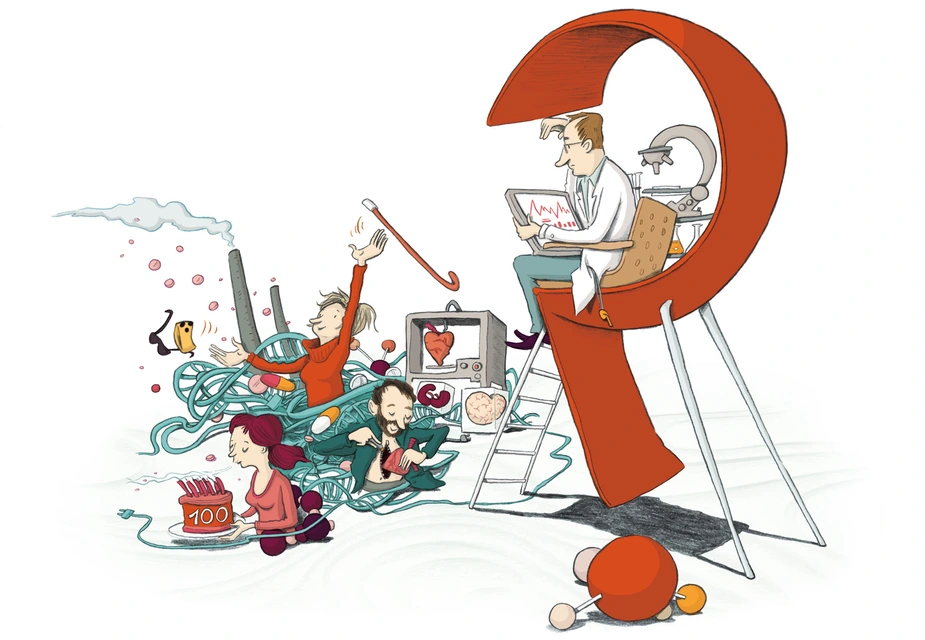The Dual System of Viewing the World: What happened to public discourse?
Essay by Prof. Dr. Holger Rust, economic sociologist, pragmatist and publicist
Amazing prospects, daring appearances, flush with optimism. We will defeat cancer. The blind shall see. Hip arthrosis will soon be a topic of retrograde science fiction. Surely, there will be things that the futurologists of AI-based biogenetics have been bashfully keeping from us. But, all in all: there will be eternal life, wrinkle-free beauty and ageless sex. But, wait, here come the admonishers. There is a dark side of the moon, they say. Frankenstein’s monsters are coming to take over the world! Life-like robots strutting though reality. What if, one day you find one of those avatars stalking you, commence to shut down his software before realising: Jesus Christ, that thing was real! This will create problems that people nowadays cannot even imagine. Problems that will make Edward A. Murphy, whose namesake law stated that anything that could go wrong would go wrong, seem like an uninhibited optimist.
What will happen, for example, if pharmaceutical researchers invent a pill that allows couples everywhere in the world to determine their children’s gender ahead of their conception? What effect will Viagra have on dependants’ pensions in light of ageing fathers? Will AI-driven cars fight each other depending on the status of their brand image? People with a Science magazine subscription know a snappy word for these problems: emergence. (Properties of a system that come about due to interactions among the parts – Editor’s note)
As early as 1998, the well-known biochemist Erwin Chargaff called for a change of perspective, a “view from the 13th floor” as he called his famous book, to see the big picture, to not “get out of touch with reality and humanity”. Seeing as we are citing the classics, I deem it appropriate to invite the physicist and novelist Charles Percy Snow into our virtual conversation. C.P. Snow gave a talk at Cambridge University titled “The Two Cultures and the Scientific Revolution” on 7th May 1959. He lamented bitterly the rift between two intellectual milieus that met each other with increasing arrogance: the physical-mathematical worldview, on the one hand, and the humanistic-hermeneutic on the other. Fifty years later, on 10th May 2009, the British Financial Times (FT) stated that Snow’s talk was “one of the most influential single lectures of the past century”. The FT’s verdict was based on the conclusion of Snow’s talk that can be boiled down to a catchy buzzword: “Third Culture” – the synthesis of disciplinary thinking and the debate about its consequences for previously undocumented spheres of life.
This is a great motto for a time like today, in which so-called pop philosophers and self-proclaimed futurists scan science for select sensational findings, repackage them in some garish buzzword and sell them to the public. A time in which tentative results from brain research and genetics are reduced to their effects on TV ratings amidst the idle talk of television debates. And a time when magazines for men and women boost their sales with skewed analogies (sex and diets, washboard abs and the evolutionary symbolism of the buttocks). The lesson is clear: we must reclaim the public debate and we must do it using a language that can be understood beyond the clandestine (characterised by secrecy – Editor’s note) circles of the “white boxes”.
